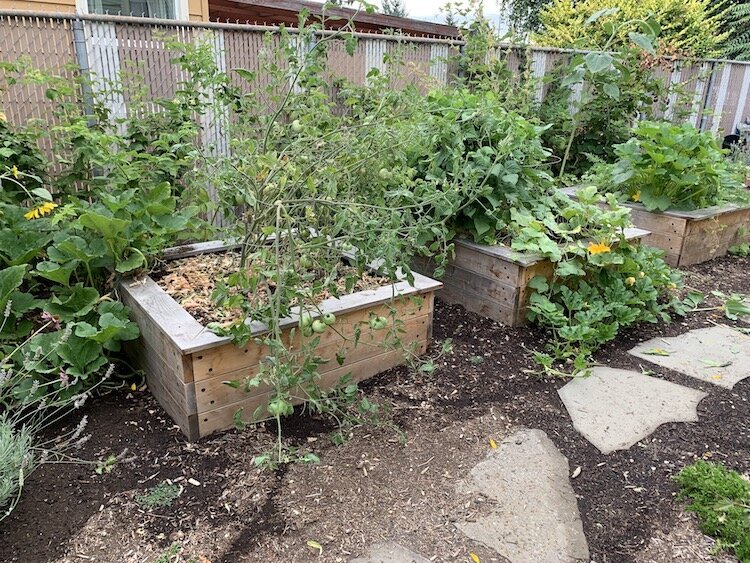Gardening for your Skin
The garden is going off; I have a jungle of sunflowers, a dehydrator full of asian pears, and every day we’re eating tomatoes, cucumbers, and/or beans. I come from gardeners (we pretty much all do). I remember snacking on cherry tomatoes in my grandma’s garden, eggplant from Auntie Linnea’s, and that time Auntie Val planted a strawberry garden in our backyard. My mama’s got a vegetable-producing touch that I only aspire to and my Auntie Val homesteads her way into winter. Watching a garden grow and flower and fruit makes me happy. I believe that having a garden, even if it’s only a pot of herbs, sets the stage for healthy, clear, and youthful skin. This week I show how having a garden supports optimal skin.
Emotional stress can affect, reveal, and exacerbate skin conditions like rosacea, hives, and psoriasis (1). Under stress, the brain releases a hormone called cortisol. In normal conditions, cortisol levels fluctuate throughout the day with highest levels in the morning, however under stress, cortisol levels are dysregulated (2). Cortisol is an androgenic hormone, which means that it promotes male sex characteristics, it also promotes acne formation by stimulating oil glands in acne prone people (3). The good news is that gardening can lower cortisol levels (4) and it has been shown to reduce symptoms like anxiety and depression; also associated with unwanted skin conditions (5).
What we eat affects our skin. For example, a diet high in omega-3 fatty acids, fruits, and vegetables protects against acne (6). Consuming a diet high in fruits and vegetables ensures that we are getting adequate vitamins, minerals, fiber, and antioxidants. Eating plant foods reduces inflammation and oxidative damage through their antioxidant and anti-inflammatory effects which prevents skin aging by preserving collagen (7). Further, a diet high in plant foods supports a healthy gut microbiome because of its high fiber content (this is food for the good gut bugs!) The gut-skin connection is well established, and is exemplified by some gut conditions manifesting in the skin such as acne and psoriasis (8). Keeping a garden helps keep our plates full with fruits and veggies.
The caveat here is the sun because exposure to the sun’s UV radiation accounts for 80% of visual facial aging changes (9)! So important to wear a large brimmed hat, sunscreen, and protective clothing; this is a lesson I have to be reminded of constantly because I love the sun. I had my arms out yesterday unprotected and got a lil burnt! My reaction now, based on what I know, is to up my vitamin C intake (through supplementation) for its antioxidant magic.
If you are looking to improve your skin’s health and do not have a garden, I recommend starting one. Getting your hands in dirt, connecting to the potential of nature, and consuming its fruits is medicine. Garden shops are great resources for getting started with support like gardening calendars and classes. Here in Portland, I recommend Garden Fever and Portland Nursery.
Resources
https://pubmed.ncbi.nlm.nih.gov/20467395/
https://www.ncbi.nlm.nih.gov/pmc/articles/PMC4082169/
https://www.ncbi.nlm.nih.gov/pmc/articles/PMC5722010/
https://pubmed.ncbi.nlm.nih.gov/20522508/
https://pubmed.ncbi.nlm.nih.gov/21430888/
https://pubmed.ncbi.nlm.nih.gov/33462816/
https://www.ncbi.nlm.nih.gov/pmc/articles/PMC7146365/


